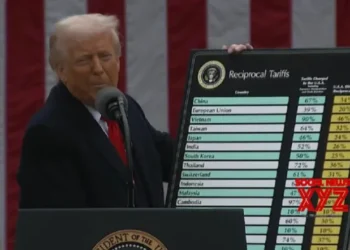New scientific research underscores the effectiveness of vaccines and their versatility in the fight against the coronavirus
Three scientific studies released on Monday offered fresh evidence that widely used vaccines will continue to protect people against the coronavirus for long periods, possibly for years, and can be adapted to fortify the immune system still further if needed.
Most people immunised with the mRNA vaccines may not need boosters, one study found, so long as the virus and its variants do not evolve much beyond their current forms — which is not guaranteed. Mix-and-match vaccination shows promise, a second study found, and booster shots of one widely used vaccine, if they are required, greatly enhance immunity, according to a third report.
Scientists had worried that the immunity conferred by vaccines might quickly wane or that they might somehow be outrun by a rapidly evolving virus. Together, the findings renew optimism that the tools needed to end the pandemic are already at hand, despite the rise of contagious new variants now setting off surges around the globe. “It’s nice to see that the vaccines are recapitulating what we’ve also seen with natural infection,” said Marion Pepper, an immunologist at the University of Washington in Seattle. Deepta Bhattacharya, an immunologist at the University of Arizona, said, “Remember all that stuff at the beginning where people were panicking over antibodies vanishing?” With all the good news now, he said, “it’s hard for me to see how and why we would need boosters of the same thing every six to nine months.”The coronavirus may be evolving, but so are the body’s defenders. In a study published in the journal Nature, researchers discovered that the vaccines made by Pfizer-BioNTech and Moderna set off a persistent immune reaction in the body that may protect against the coronavirus for years, in part because important immune cells continue to develop for longer than thought. Ali Ellebedy, an immunologist at Washington University in St. Louis, and his colleagues reported last month that immunity might last for years, possibly a lifetime, in people who were infected with the coronavirus and later vaccinated.
But it was unclear whether vaccination alone might have a similarly long-lasting effect. In the new study, his team found that 15 weeks after the first vaccination, immune cells in the body were still organising — becoming increasingly sophisticated and learning to recognise a growing set of viral genetic sequences. The longer these cells have to practice, the more likely they are to thwart variants of the coronavirus that may emerge. The results suggest that the vast majority of vaccinated people will be protected over the long term — at least, against the existing coronavirus variants. Older adults, people with weak immune systems and those who take drugs that suppress immunity nonetheless may need boosters. But people who survived COVID-19 and were later immunised may never need additional shots, because their immune responses seem to be particularly powerful.
The study looked at mRNA vaccines and did not consider the vaccines made by Johnson & Johnson or AstraZeneca. Dr. Ellebedy said he expected the immune responses produced by those vaccines to be less durable than those produced by mRNA vaccines. New research suggests that a mix-and-match approach may work as efficiently. People who have had a dose of the Johnson & Johnson or AstraZeneca vaccines may do well to opt for an mRNA vaccine as the second dose. In a British vaccine study published on Monday, volunteers produced high levels of antibodies and immune cells after getting one dose of the Pfizer-BioNTech vaccine and one dose of the AstraZeneca shot.
Administering the vaccines in either order is likely to provide potent protection, Dr. Matthew Snape, a vaccine expert at the University of Oxford, said at a news conference on Monday. “Any of these schedules, I think could be argued, would be expected to be effective,” he said. Dr. Snape and his colleagues began the trial, called Com-COV, in February. In the first wave of the study, they gave 830 volunteers one of four combinations of vaccines. Some got two doses of either Pfizer-BioNTech or AstraZeneca, both of which have been shown to be effective against COVID-19. Others got a dose of AstraZeneca followed by one of Pfizer, or vice versa. Those who got two doses of Pfizer-BioNTech produced levels of antibodies about 10 times greater than in those who got two doses of AstraZeneca. Volunteers who got Pfizer-BioNTech followed by AstraZeneca produced antibody levels about five times greater than in those who received two doses of AstraZeneca.
And volunteers who got AstraZeneca followed by Pfizer-BioNTech reached antibody levels about as great as in those who got two doses of Pfizer-BioNTech. Another promising result came when the researchers looked at levels of immune cells primed to attack the coronavirus. Mixing the vaccines produced higher levels of the cells than two doses of the same vaccine.
Dr. Snape said it wasn’t clear yet why mixing brought that advantage: “It’s very intriguing, let’s say that much.” Dr. Snape and his colleagues have begun another similar mixing trial, including vaccines from Moderna and Novavax on the list of possibilities. But he stopped short of recommending a routine mix-and-match strategy. For now, he said, the best course of action remains getting two doses of the same vaccine.
Large clinical trials have clearly demonstrated that this strategy reduces the chances of getting COVID-19. “Your default should be what is proven to work,” Dr. Snape said. But for many people, that may not always be possible. Vaccine shipments are sometimes delayed because of manufacturing problems, for example. Younger people in some countries have been advised not to get a second dose of AstraZeneca, because of concerns about the small risk of developing blood clots.
In such situations, it’s important to know whether people can switch to another vaccine for a second dose. “This provides reassuring evidence that should work,” Dr. Snape said.
Despite the encouraging news that most people may not need boosters of mRNA vaccines, there may be some circumstances in which third shots are needed. So vaccine manufacturers have been testing booster doses that could be deployed just in case. The results make for good news. Researchers reported on Monday that a third dose of the AstraZeneca vaccine generated a strong immune response in clinical trial volunteers.
Ninety study volunteers in Britain were among the first to receive the shots in a clinical trial last year. This past March, they were given a third dose, roughly 30 weeks after their second. Laboratory analyses showed that the third dose raised antibody levels to a point higher than seen even a month after their second dose — an encouraging sign that a third shot should provide new protection even if the potency of the first two doses were to wane. The study was posted online in a preliminary preprint form, but has not yet been peer-reviewed nor published in a scientific journal.
“We do have to be in a position where we could boost, if it turned out that was necessary,” Andrew Pollard, an Oxford University vaccine researcher, said at a news briefing on Monday. “I think we have encouraging data in this preprint to show that boosters could be used and would be effective at boosting the immune response.”But if booster shots are deemed necessary in the coming months, availability could be severely limited, especially in poorer countries that are lacking enough supply to give even first doses to their most vulnerable citizens.























